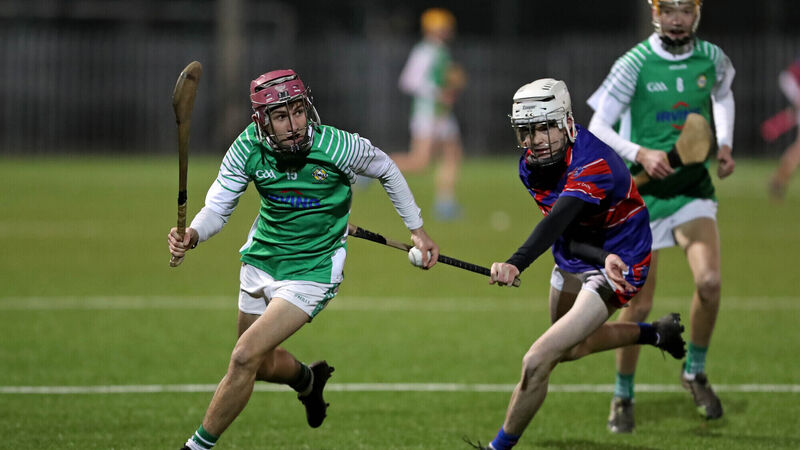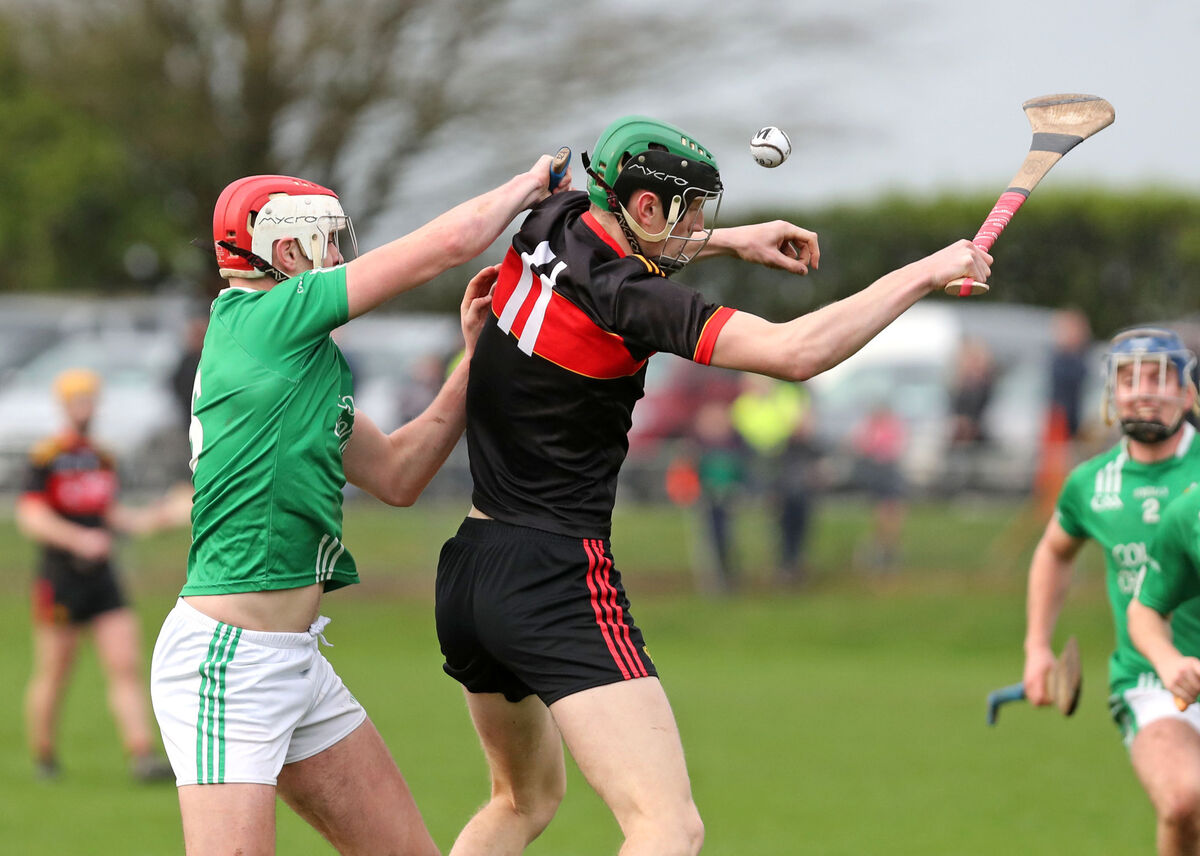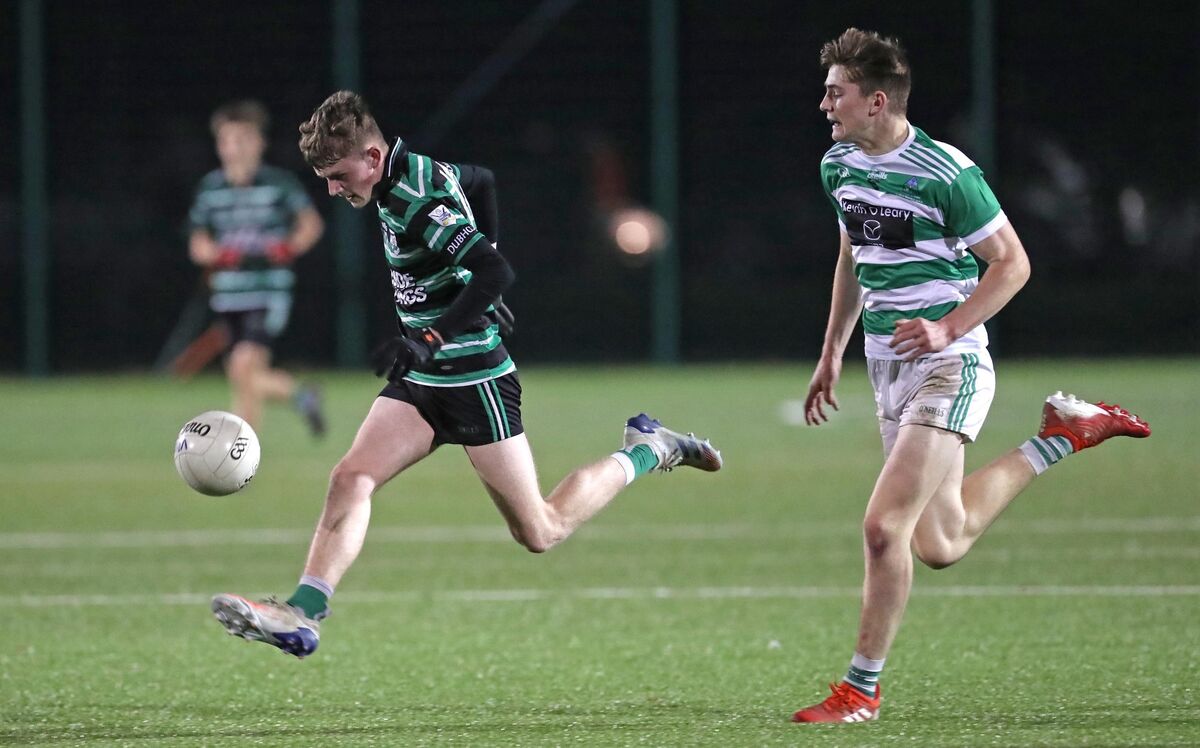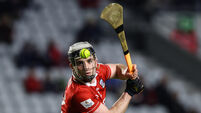Major change needed at minor GAA: U17 is too young to expect hurlers and footballers to move up from underage

Zach Hyland, Erin's Own, in pursuit of Stephen O'Shea, Aghada, in last year's Rebel Óg P2 U16 final. Picture: Jim Coughlan.
AT the Gaelic Grounds on Sunday, newcomers Ciarán Joyce and Daire O'Leary showed why they're strong candidates to feature for the Cork hurlers in championship.
Both only turn 20 this year but their size and skill meant they contributed hugely to the big league win over Limerick. O'Leary's case is interesting as the Watergrasshill club man didn't make a huge impact as a Cork minor in 2019, primarily as a forward, before thriving as a defender when he progressed to U20.

Player development was a major topic at GAA Congress last weekend. A Central Council motion on U19 becoming the key minor age, with U17 a developmental one (for inter-county purposes), just failed to get the required percentage of the vote.
What's clear is that many GAA club members do not agree with the decision to drop minor from U18 to U17.
The idea was sound in theory. Juvenile players became ineligible at senior which made fixture planning far easier and eased the demands on many gifted teens.
The huge problem was that no competitions were put in place to keep young players engaged beyond minor. The majority of U17s these days are in Transition Year and many turn 19 in the year they sit the Leaving Cert.
We can use all the cliches in the world about the pride of the parish but youngsters often play sport simply to have fun and compete alongside their friends. It's why there should be competitions at every age in any sport where there are sufficient numbers.
Locally, the Rebel Óg decision last year to undercut the U14 and U16 leagues and discourage Cork clubs from entering teams at those ages was a serious misstep. Covid was a factor but it didn't help player retention, especially in clubs with big numbers.
There were scenarios where massive urban clubs had to play league games 11-a-side during the summer as they couldn't call up U15s to fill in. Those same U15s were able to line out in U17 league games though.
With minor set at U17, proper U19 or U20 championships are required to bridge the gap to senior now. However, they run into the same problems the old minor format faced, clashing with exams in May and June and second- and third-level activity earlier in the year.

A decade ago at GAA Congress, a motion to remove U18s from adult grades and separate minor and senior was shot down, with smaller clubs worried about fielding teams without their 18-year-olds. Eventually switching minor to U17 was introduced as a compromise, first at inter-county from 2018 and then at club level since last year.
GAA president Larry McCarthy told the about the vote on the U19 minor grade: “A lack of detail was our weakness. Whatever number of pages came out of the rule book were going to be replaced in Congress terms by two lines. We probably hadn't explained that properly and deeply enough.
“One of the concerns was when it was going to be run in terms of timeframe. My understanding was that it was going to be run in the U20 slot that exists at the moment. It has least interference with the Higher Education at one end and secondary schools and running into club stuff later in the year.”
Now a Special Congress will be held later in the year to determine underage grades from 2023. Other motions on the 2022 clár put forward from clubs had proposed U18 should be restored as the minor tier for clubs rather than county teams, while there was a suggestion U18s should be prevented from playing at adult level.
As the former head of the minor review group Micheál Martin explained to John Fogarty recently: "There is no one-size-fits-all solution.
"A majority might agree that going back to U18 but decoupling U18 and below from adult would solve a lot of problems. But I’m sure there are a lot of clubs along the western seaboard who would rail against that."







 App?
App?







